Your customers depend on your filter knowledge to keep their vehicles running for a long, long time.
Your customers made a significant investment when they purchased a Mercedes-Benz. Your expertise can help maximize their return on that investment by faithfully following all filter change intervals for the type of driving your customer does and by always using Genuine Mercedes-Benz filters.
Aftermarket filters, with their slightly lower price, may seem like an attractive option to you because you can either save your customers a few dollars, or improve your bottom line a little when you use them. But aftermarket filters cannot compare with the OE quality of Mercedes-Benz filters. All Mercedes-Benz vehicles are carefully designed and engineered down to the last detail. The filters specified by Mercedes-Benz are the only ones designed to work exactly as the engineers intended on a Mercedes-Benz car or SUV.
Cheaper filters can also carry a serious risk. All you need is one component failure because the cheap filter didn’t do its job and your customer’s small savings or your extra profits will more than disappear, along with your reputation for quality work.
For most technicians, a filter change is just that, pull out the old filter, toss it, and install the replacement. Unless the fluid and filter change is part of a scheduled major service,
filter replacement is typically a lower skill task done by a lesser experienced technician. However, if you add just a few seconds to a filter change to carefully inspect the old filter, you can learn a lot about your customer’s driving habits and maintenance needs. You can also pick up warning signs of possible problems, too.

Frame Stability: The rigid frame of a Genuine Mercedes-Benz filter (left) provides better edge sealing, hence performance than a weak, no-name filter (right).
Never 100%
Filter design is always a balancing act or trade off between efficiency, protection, and capacity. Think about a one-cylinder engine on a lawn mower, with an air filter mounted over the carburetor. When you remove the air filter and start the engine, air flow would be 100 percent efficient. At full throttle, the engine would draw in the maximum amount of air possible past the venturi. Protection, however, would be zero because nothing would block airborne particles from entering the engine. Service life would plummet as particles scored the piston and cylinder walls.
Plug the carburetor opening completely and you would have 100 percent protection, nothing would get into the engine. But “nothing” also includes the air needed for combustion so the engine would never start or run!
So no filter can be 100 percent effective and still provide 100 percent protection. Genuine Mercedes-Benz filters are designed and manufactured to provide maximum effectiveness and maximum protection. The efficiency and protection numbers for discount, no-name filters can be scary.
Capacity, the third measure of filter quality, is the volume of contaminants a filter can hold before it becomes full or overloaded and restricts flow. The higher the capacity rating, the longer the filter can be on the car before it must be changed.

Row Straight: Evenly spaced, straight filter media rows on a Genuine Mercedes-Benz filter (left)
perform better than the inconsistent filter bed of a competitive brand (right).
Although there are different procedures for changing air, oil, fuel, and passenger compartment filters, you should always follow these steps whenever you replace any filter:
- Verify when the filter was last changed based on either your shop records or the maintenance booklet.
- Inspect the old filter. If the vehicle is at its normally scheduled service interval, based on mileage or time, but the filter is extremely dirty, your customer’s driving habits are probably in the “severe” category. Recommend that your customer start following the shorter “severe” service maintenance intervals to protect his or her car. If your shop has a customer reminder program for schedule maintenance, change the time between notices to the severe duty interval.
- If the filter is very dirty, and the vehicle is overdue for service, stress to your customer the importance of following Mercedes-Benz recommended service intervals to protect the vehicle.
- If the filter shows a normal amount of contamination, but the vehicle is overdue for service based on your records, your customer may be getting service work done elsewhere. If the old filter isn’t a Genuine Mercedes-Benz replacement, you know he or she is going somewhere else! Using your best customer relations skills, point out that a shop like yours that only uses Genuine Mercedes-Benz parts is the best place to have any Mercedes-Benz vehicle maintained.

End Seal: Particles can’t get past the tight end seal of a Genuine Mercedes-Benz filter (left). Competitive filter end seals (right) can’t make the same claim.
Hardest working filter
All filters work hard, but the air filter has the toughest job based on the volume, or amount of work it does. To burn just one gallon of gasoline requires about 10,000 gallons of air! All 10,000 gallons of that air must be cleaned before entering the engine.
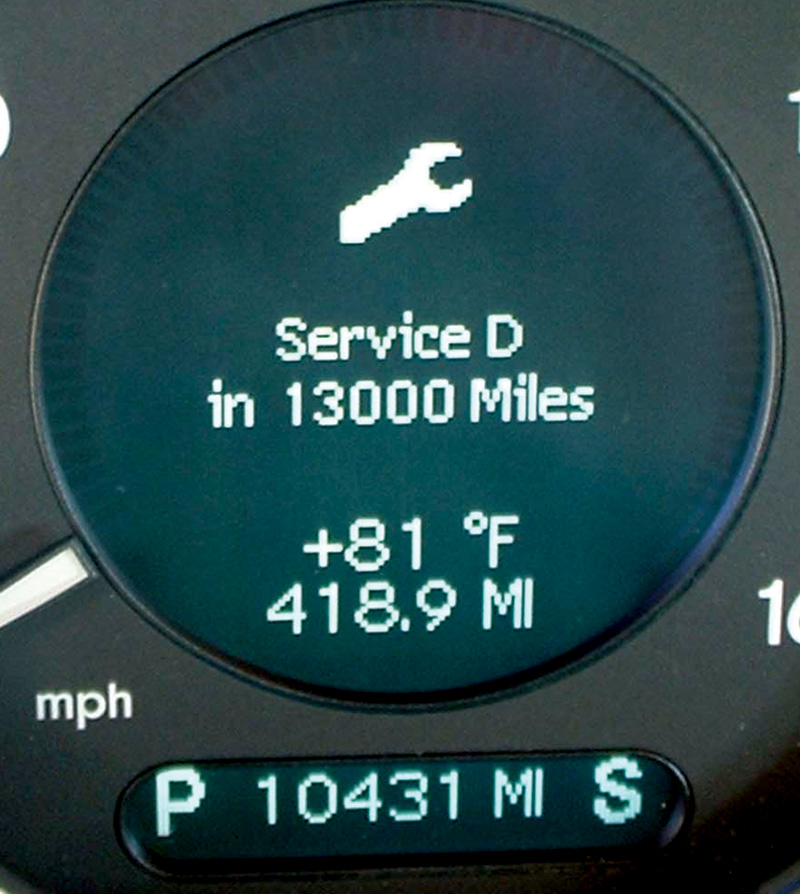
The Mercedes-Benz Flexible Service System (FSS) allows service intervals to be extended without danger. That doesn’t relieve you of the responsibility of using only the best filters during maintenance.
A Mercedes-Benz air filter effectively removes the dust, environmental pollutants, tire particles, and particulate matter that is found wherever vehicles are used. Genuine Mercedes-Benz air filters offer significant advantages compared to other filters:
- Filtering down to the 10 to 20 micron range. Capturing the smallest particles is critical because recent testing has shown that it is the smallest particles, not the larger ones, that cause the fastest engine wear if they are not captured by the filter.
- Maximum capacity. The element used in a Mercedes-Benz air filter has high strength to hold a large amount of contamination. The element is specifically treated to resist breakdown.
- Optimum fold geometry. The complex bends allow a large amount of filter element to be contained in a small space. Increased filter element area boosts capacity and allows extended service intervals.
- Absolute impermeability. Special bonded joints, metal clamping strips between the dirty side and the clean side, optimized seals, profiled joints, and precise foam-molded end plates prevent leaks that allow incoming air to bypass the filter and go straight into the engine.
- Sturdy supportive covers. These perforated stainless steel sheets prevent uncontrolled deformation and temporary leaks.
- Dimensional accuracy. You can count on only a Mercedes-Benz air filter to be properly sized for each application to ensure an optimal fit inside the air box.
When you replace an air filter, always clean the air box and inspect it for any physical damage. Replace any air box that is dented, distorted, cracked, or otherwise damaged. Install the new filter and secure the air box. The air box fasteners should be snug, but not difficult, to close.
Oil filters
The Mercedes-Benz Flexible Service System (FSS), introduced on some MY ’98 models and used through MY ‘04, monitors time between oil changes and the condition of the oil. A graphic indicator on the dash advises the driver when an oil and filter change is due, based on the vehicle’s specific driving history.
With FSS, a driver who puts on a lot of miles at highway speed may not see the oil change indicator for up to 20,000 miles, while a stop-and-go, in-town driver may only go 6,000 miles before getting the reminder.
For any Mercedes-Benz without FSS, follow the recommended oil and filter change intervals for the vehicle based on the driver’s habits. Any driver who spends most of his or her time in around town or short-trip use will be in the “severe” category and more frequent changes are recommended.
The job of the engine oil is to lubricate, seal, cool, and clean the interior of the engine. The job of the oil filter is to trap the contaminants picked up by the oil as it passes through the engine.
Mercedes-Benz oil filters should be changed at the recommended intervals to ensure maximum engine performance and service life. Filters remove contaminants from the oil, allowing extended maintenance intervals and ensuring long engine life. Filters that are left on too long become overloaded with contaminants. When an oil filter is overloaded, contaminants, instead of being trapped by the filter, circulate throughout the engine, causing premature wear and damage.
Mercedes-Benz is an industry leader in engine technology, not only in design, but also in the use of new alloys that reduce weight without compromising strength. These sophisticated engines require the protection that only premium oil and filters can provide. By using only Genuine Mercedes-Benz oil filters, you, and your customers, are assured of:
- Optimum filtration. Genuine Mercedes-Benz oil filters can trap particles smaller than 0.005 mm. (0.0002 in.).
- High capacity. Genuine Mercedes-Benz filters are designed so the whole available volume of the casing is used to provide a maximum filtering surface and to make longer maintenance intervals possible.
- Correct size. Only a Genuine Mercedes-Benz oil filter is designed to fit exactly for optimum impermeability and effective lubrication.
Whenever you change an oil filter, take a moment to inspect it for any signs of damage or deformity. A distorted filter typically indicates excessive oil pressure, which is usually caused by obstructions in the lubrication system. Test oil pump pressure whenever you have a damaged filter to make sure it is within specifications.
Also, take a look inside the old filter to make sure the filter itself is intact. Any internal damage is a bad sign. Parts of the filter may have broken off and entered the lubrication system. Check oil pressure. An analysis of the old oil may be needed to determine if there is abnormal internal wear.
Always drain the old filter and dispose of it properly, in compliance with all environmental regulations.
Fuel filters
Fuel filters are unique because, unlike air and oil filters, a fuel filter, in theory, should never get dirty. If all service stations sold only clean, uncontaminated gasoline and if fuel system corrosion was never a problem, there would be nothing for a fuel filter to trap! The real world, unfortunately, is much different from the ideal. Gasoline or diesel can be contaminated and fuel systems can become corroded. The fuel filter must trap any particles that could clog or damage the tight tolerances of the fuel injection system.
In addition to protecting the injection system from contamination, the fuel filter’s large size serves as a reservoir to dampen fuel pump pulsations with roller cell or gerotor designs (turbine-type pumps don’t produce pulsation). Fuel flow is much smoother coming out of the filter than it is going in.
The worst thing about a clogged fuel filter is that it causes the fuel pump to work harder, dramatically shortening its life. If you were to put an ammeter in the fuel pump circuit, you might see up to twice the normal current draw. Eventually, this will cause the brushes and commutator to burn up and wear out.
On top of that, a fuel filter that has been left in service too long can cause a deterioration in performance, including gradual loss of power, stalling, and slow acceleration. A badly clogged filter will shut down an engine because not enough fuel will pass through to the injectors.
If the old filter is loaded with dirt or other contaminants, remember that all the contamination in the filter was first in the tank, and then passed through the fuel pump, before it got to the filter. The discovery of a clogged fuel filter should prompt a more complete inspection and pressure testing of the complete fuel system, including the injectors. It may be wise to remove and clean the fuel tank.
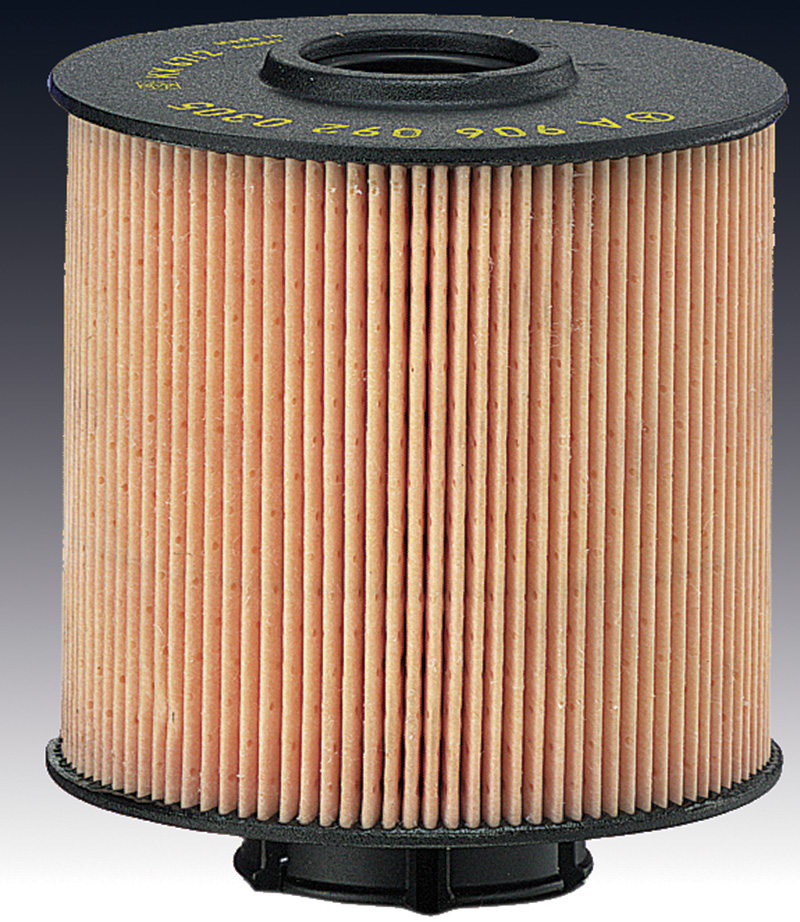
Fuel filters should be changed at least as often as called for in the maintenance schedule. And a really filthy fuel filter is an alert to inspect the entire fuel system.
Mercedes-Benz relies on precise metering of fuel for optimal performance and mileage, while also minimizing emissions. Use of a Mercedes-Benz fuel filter is a key part of fuel system maintenance because of:
- Excellent impermeability. Mercedes-Benz filters feature special bonded joints for optimum separation between the clean and dirty side of the filter.
- High quality materials. Genuine Mercedes-Benz fuel filters are resistant to aggressive fuel additives and corrosion.
- High capacity. The quality and workmanship of the filtration media guarantee high fuel purity, long life, low flow resistance, and very good temperature resistance.
- Perfect interaction of all components. Only Genuine Mercedes-Benz replacement filters are designed to work as an integral part of the total fuel system.
Passenger compartment filters
If you don’t know your filter history, you might think that passenger compartment air filters are newcomers to the automotive filter world. You would be wrong. The first passenger air filter system appeared in 1939 on what was called the “Weather Eye” system used by the long-defunct Nash.
Unfortunately, passenger compartment air filters didn’t catch on at the time. In the late 1980s, however, carmakers realized that with the improvements in engine air filters, and the growing problem of air pollution, engines were breathing cleaner air than people!
Genuine Mercedes-Benz passenger compartment filters trap many pollutant particles in the air including smoke, dust, bacteria, mold, spores, pollens, and some exhaust gas emissions before they enter the passenger area. The cleaner air is not only safer for everyone sitting in a Mercedes-Benz, it also improves the operating of the climate control system and keeps the interior cleaner.
For some unknown reason, cabin filter replacement is a profit opportunity that many shops continue to overlook. Many of your customers may not even realize that their Mercedes-Benz has a passenger compartment air filter. But it shouldn’t take much of a sales job to convince them that regular replacement of the filter is good for them and good for their cars. To help you sell passenger compartment filters, put an old, dirty filter in a clear plastic bag, and keep it handy. Show your customers what the filter is protecting them from. If the filter isn’t replaced at regular internals, that contamination would be entering the passenger compartment and going into their lungs. Don’t miss this money-making opportunity.


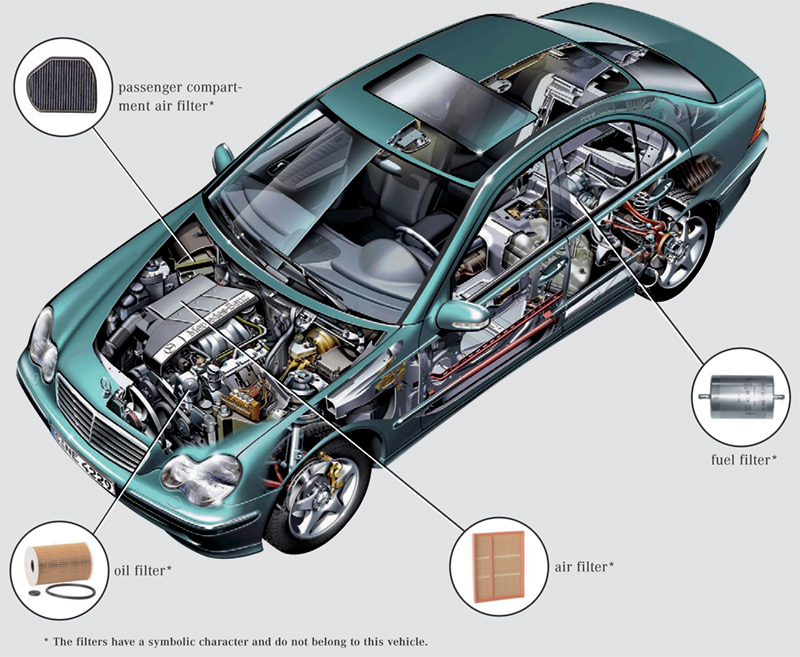
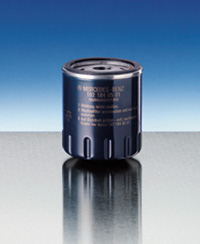
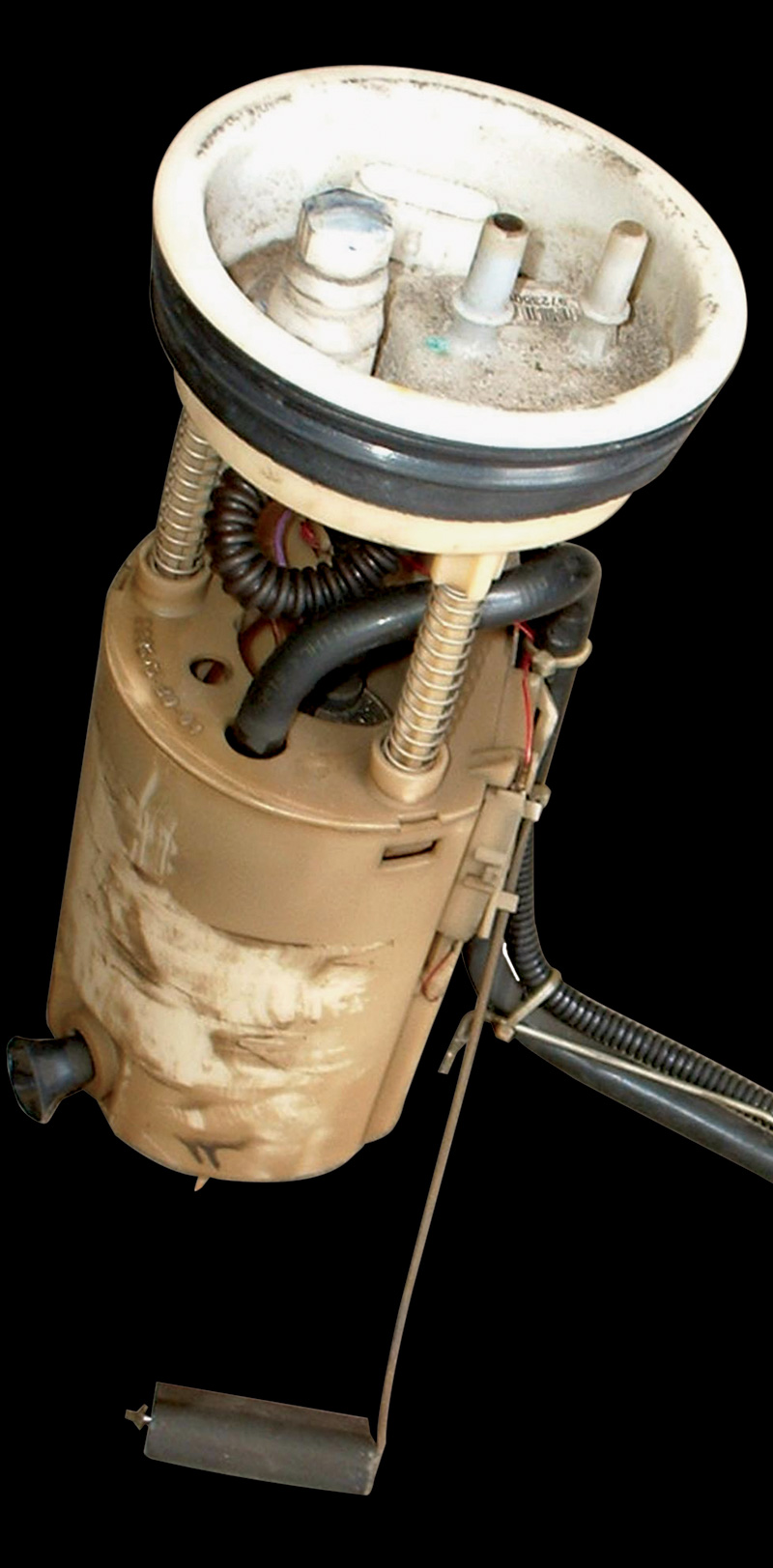


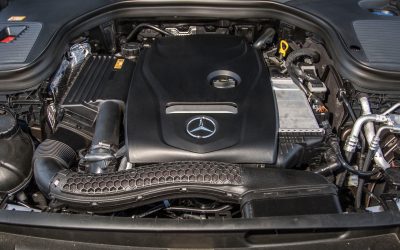
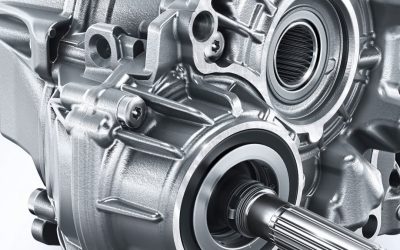
0 Comments